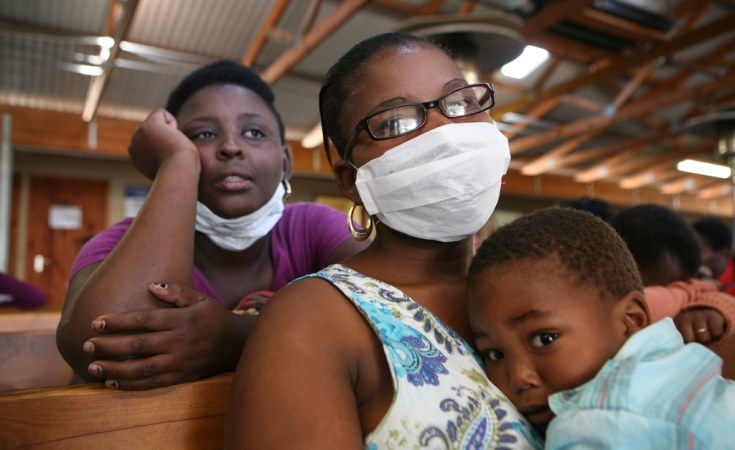Cape Town — Weaknesses in South Africa's public health system have been cited as being among the reasons tuberculosis has increased four-fold in the last 15 years.
Addressing the country's failure to control and cure TB, Veloshnee Govender of the University of Cape Town's Health Economics Unit told a major conference on poverty alleviation that there has been a 400 percent increase in TB incidence in the last decade and a half.
In line with recommendations of the World Health Organisation (WHO), treatment of TB follows the DOTS (Directly Observed Treatment Short course) protocol, which requires that TB patients take medication daily in front of a health worker who administers and "observes" that this is done correctly.
Keep up with the latest headlines on WhatsApp | LinkedIn
Treatment of TB usually requires a daily dose of drugs for six months, but in more severe cases it may require a longer period. Given the long distances some patients have to travel to get to clinics, or the inconvenience of fitting in daily visit to a clinic, many patients do not take their medication as diligently as they should.
However, the WHO protocol also states that the "whole purpose of treatment observation would be defeated were it to limit access to care, turn patients away from treatment or add to their hardships".
From a study of 1,200 patients in four health sub-districts in South Africa, researchers have investigated the barriers that patients face in taking their treatment regularly and consistently. Excluding those receiving their treatment through injections, Govender said that "more than half of those who reported missing treatment doses were being observed at clinics".
Taking treatment at a clinic was the key variable that determined whether someone missed their daily dose. Patients who missed treatment at clinics said the reasons they did so included the cost of transport, their distance from facilities and the conflict between taking medication and meeting work and other domestic responsibilities.
"I walk for more than an hour, where normally it took me half an hour to get there in the past," said one patient surveyed in the study. "Every time I have to sit on the pavement to catch my breath and the pain in the chest I only get three pills then I have to walk back home."
Govender said research showed that observation at clinics was not a necessary element in ensuring that patients took their TB treatment. In fact, less frequent clinic visits may contribute to "improved efficiency, higher adherence, and lower patient access barriers to care".
She said that self-supervision, the same model used for patients living with HIV/Aids who take antiretroviral therapy, was a viable alternative model to consider for assisting TB patients to take their medicine.
Govender said that it is vital that health authorities consider a more "patient-focused approach to the delivery of TB treatment". This would benefit not only those suffering from TB who needed easily accessible treatment, but also the resource-constrained health system in South Africa.
The conference is entitled "Towards Carnegie III: Strategies to Overcome Poverty and Inequality". Two earlier conferences and research programmes, looking at similar issues in the 1930 and 1980s, were funded by the Carnegie Corporation of New York.




